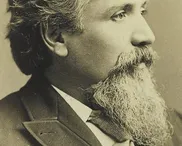Ownership, a recently published book by Sean McGever on the serious failings of some key 18th-century evangelicals, namely George Whitefield and Jonathan Edwards with regard to the issue of slavery, has been a great reminder of the fact that our heroes from that era were human beings like ourselves – broken and bent. And yet, there were some, thank God, who were steadfast in their denunciation of both slavery and slave trade.
One such figure was Abraham Booth (1734–1806), who has appeared on a couple of earlier occasions in this column. He was widely admired within the Particular Baptist denomination, the Christian community among which he ministered for most of his life. Benjamin Beddome, the great Baptist hymnwriter of the 18th century, is said to have exclaimed: ‘Oh, that Abraham Booth’s God may be my God’. Andrew Fuller, another Baptist leader of that era, once described Booth as ‘the first counsellor’ of their denomination.
But not only Baptist contemporaries viewed him highly. The Anglican evangelical Henry Venn was a lifelong friend and admirer, while Selina Hastings, the Countess of Huntingdon, a remarkable patron of Evangelical causes, took the time to come to his ordination in February, 1769.








